
Share this story
You can see the hard and fast economic impact of Piedmont Community College (PCC) in the numbers. The college served 4,067 students in 2020-21. It provided 164 hours of counseling to 75 small business entrepreneurs. Customized training was provided to 192 employees in local industries. The team PCC worked with 58 businesses and organizations to provide work-based learning opportunities for students. The total economic annual impact of the college is nearly $95 million.
Located in Roxboro and serving Person and Caswell counties, PCC President Pamela Senegal said, “In rural communities, I think we are so much more.”
Under her leadership, the college aligned its courses to the careers available locally and also made sure that all of its training will lead to a better quality of life for the students served. The college ended up with five disciplines: business studies and emerging technologies, public safety, university transfer and general education, health and wellness, and technical and manufacturing. “We have this great pipeline now to go into the careers in our regional economy,” Senegal said.
But Senegal wanted to do more. The college was “trying to figure out ways we can add value beyond the degree, certificates, diplomas, and short-term credentials,” she said.
“We have made choices to leverage our resources,” Senegal said, “to the greater good, and that’s what it takes for communities to really move forward.”
“It’s so much more than the numbers.”
— President Pamela Senegal
Senegal outlined four ways PCC creates impact beyond the numbers, including: providing services across the educational continuum; investing in the regional economy; addressing the critical needs of the community in the short and longer term; and serving as a gathering space for the community.
She and her team are planting seeds and changing minds about what the people and the region can become.
Providing services across the educational continuum
“Our middle name is community,” said Senegal. “We really do have a responsibility.”
A child development center on campus
That responsibility starts with the littlest of the students at PCC. Operational since 1977, the Piedmont Community College Child Development Center has a five-star rating. It was losing money when Senegal started serving as president in 2017. She could have shut it down.
She didn’t.
“I’m so incredibly proud of our child development center,” said Senegal. “We had to dig in and figure out some better solutions to make sure that we could continue to provide this service, which is an attractor for employees and students who might have young children, a service for the community, and it’s great for our own early childhood program — our students get to do some of their clinical time in that setting. It was just the right thing to do, but we had to figure out how to do it in a way that was financially sustainable.”
To make it work, Senegal brought in new leadership and together they leveraged multiple streams of funding, increased salaries, expanded the ages served to 2-5, stayed open from 7 a.m. to 5:30 p.m., accepted children who weren’t potty-trained, started profitable summer programs, and figured out how to stay open during COVID-19.
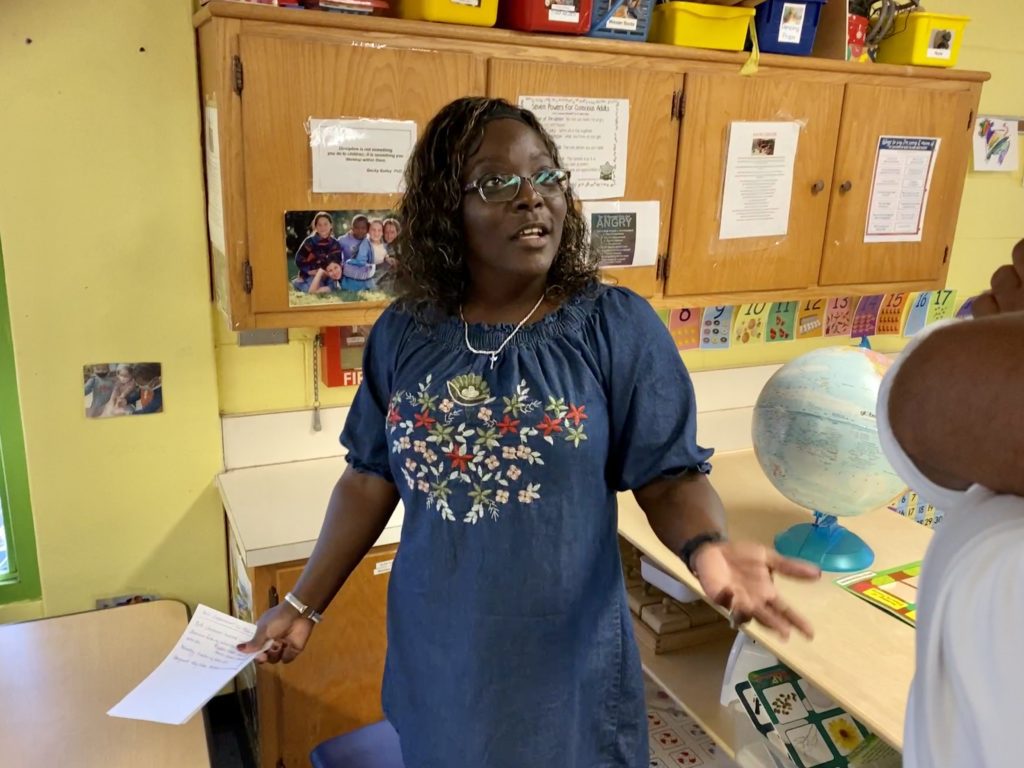
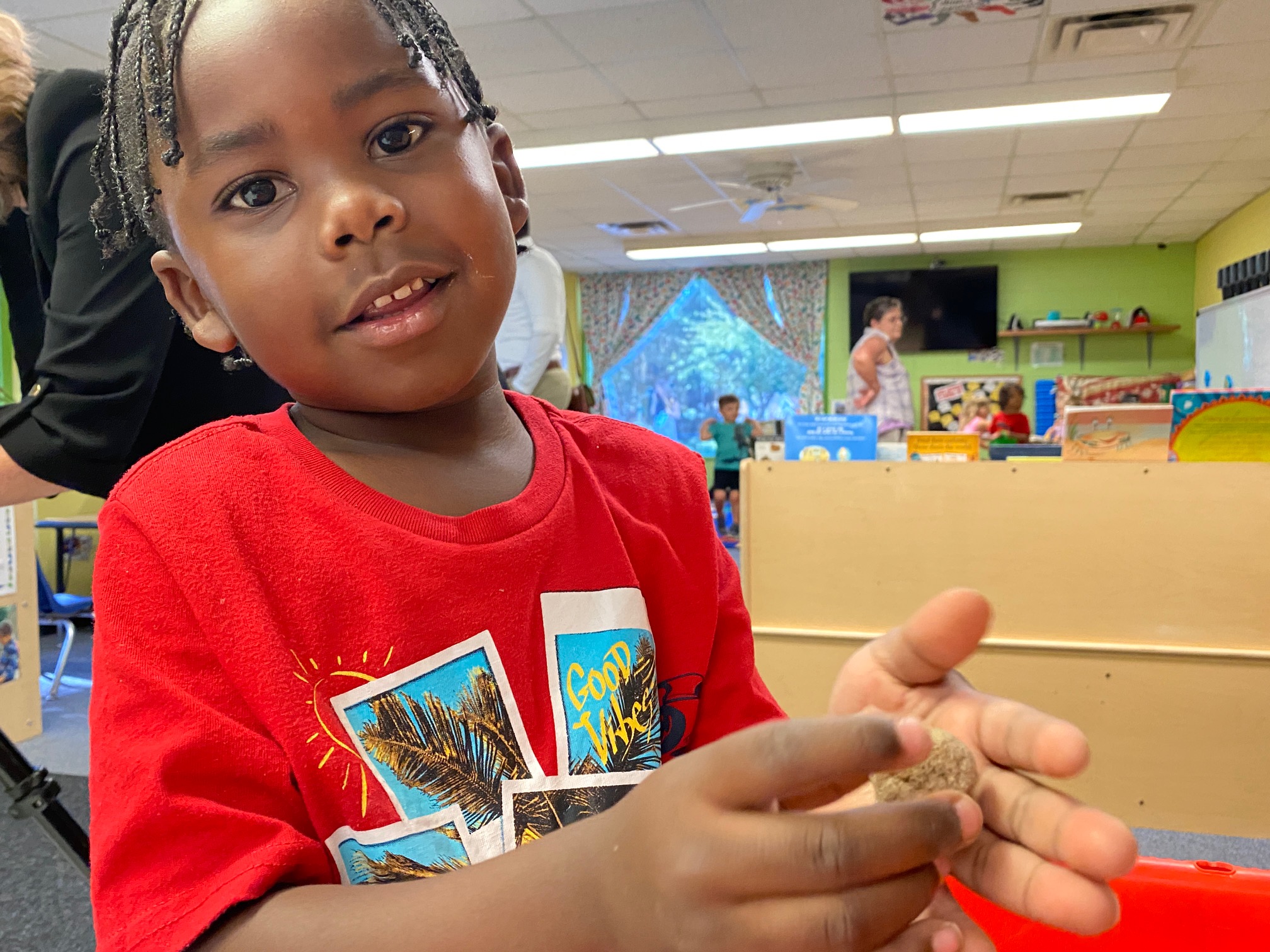


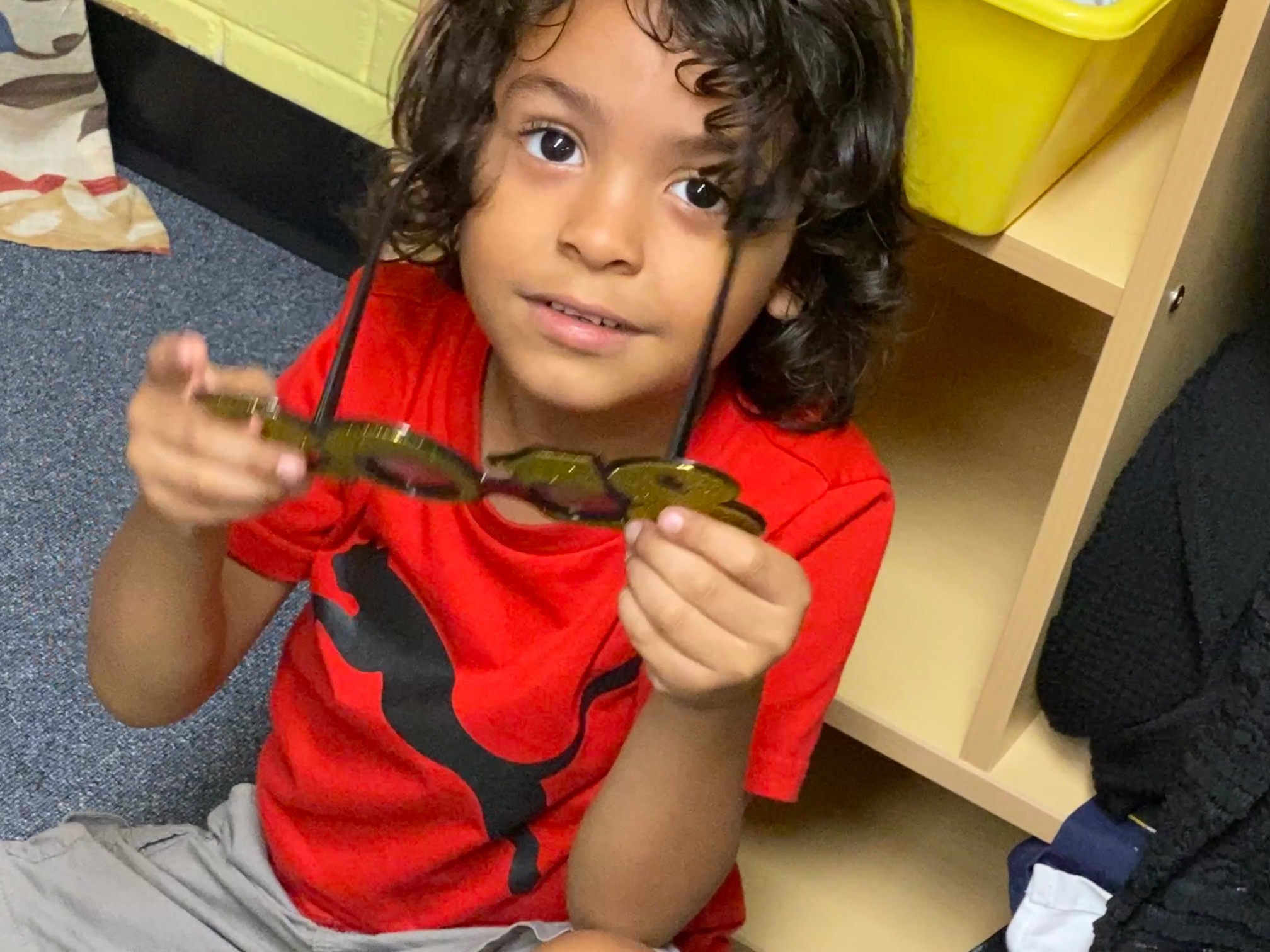
Senegal really believes access to a five-star early childhood education makes a difference for students longer term, especially when it comes to access to workforce opportunities. An impromptu discussion about what the students want to be when they grow up ranged from teachers to doctors to Spider-Man.
It would have been easier, Senegal noted, to shut the child development center down. But, she said, “that’s the magic of people identifying an issue, putting their heads together, figuring out a great solution.” And then, she continued, “you implement and execute.”
Providing college opportunities to high school students
High school students in Person County have access to an early college, or through Career and College Promise (CCP), they can take a class and try on college, take multiple classes to earn college credit, or work on an accelerated pathway and graduate with a high school diploma and an associate degree in just four years (most programs, including early college, take five years).
In Caswell County, the campus of the community college is within walking distance of the brand new high school. While there isn’t an early college, the same CCP pathways are available to students. There is also an interesting option available to students at risk of dropping out of high school. They are invited to be in a Career Academy and graduate high school with the minimum number of credits, but the flexibility created in their high school schedule allows them to stay in school, work, and earn a credential.
Bryan Miller, the county manager in Caswell County, said, “Community college lays the foundational elements needed for young adults to achieve their goals throughout life. A college education would not be affordable here without the community college system.”
“The access to college that Piedmont Community College started in conjunction with Bartlett Yancey High School is so valuable to this community because it gives those students a head start,” Miller said.
He noted that the collge’s CCP offerings save students and parents thousands in tuition, room and board, meals, and travel costs. But, more importantly he said, “it puts students in the workforce earlier.” He said the increases in salary and promotions gained over time have an exponential impact like compounded interest because they are able to start their career two years early.
See what the students themselves think about the opportunity afforded by CCP in this video:
Leia Rollins is the coordinator for college high school programs at PCC. “I want policymakers to see,” she said, “what CCP has done for all of my students — from a student taking one class to a student who got their degree. I have a student who is working with minority females about breastfeeding awareness and going on to get her doctorate.”
Rollins said the impact CCP makes on students prepares them to go on and change other people’s lives. These students graduate, she said, and they go into the real world and they play important roles on the small scale and the larger scale in their communities.
The Person Early College for Innovation and Leadership
Known as PECIL, any eighth-grader in Person County may apply to this early college, which strives to serve students who are first-generation college going, at-risk, and/or unengaged in traditional school settings but want accelerated learning opportunities. The early college opened in 2016-17, graduating its first class in 2020-21.
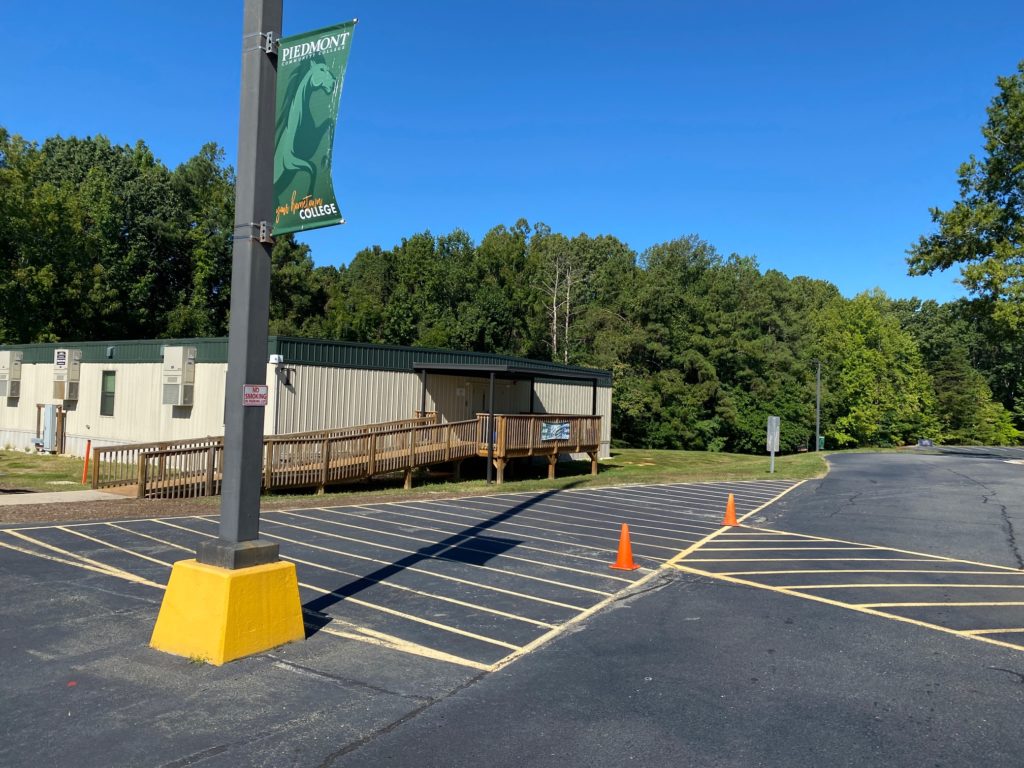

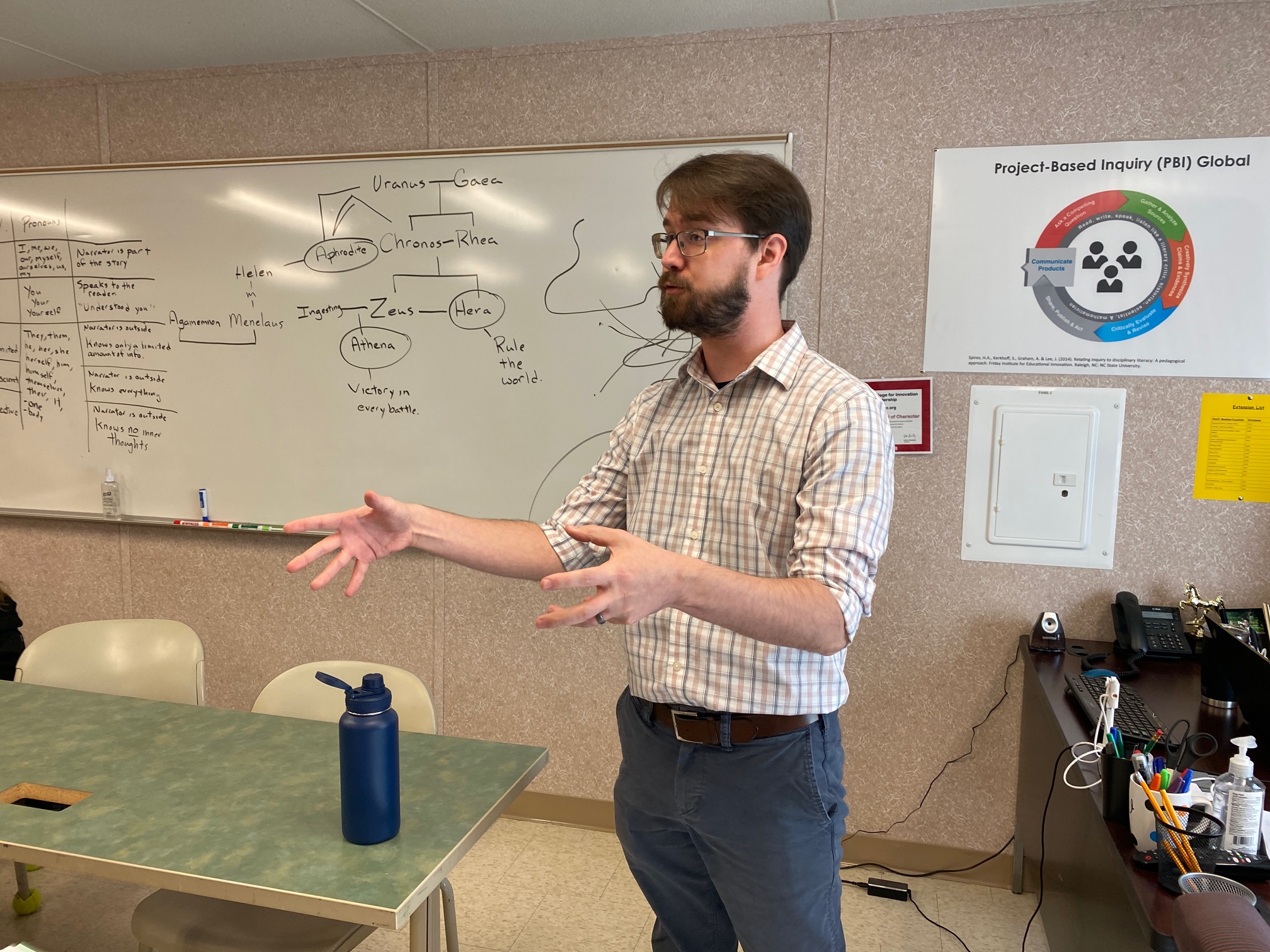
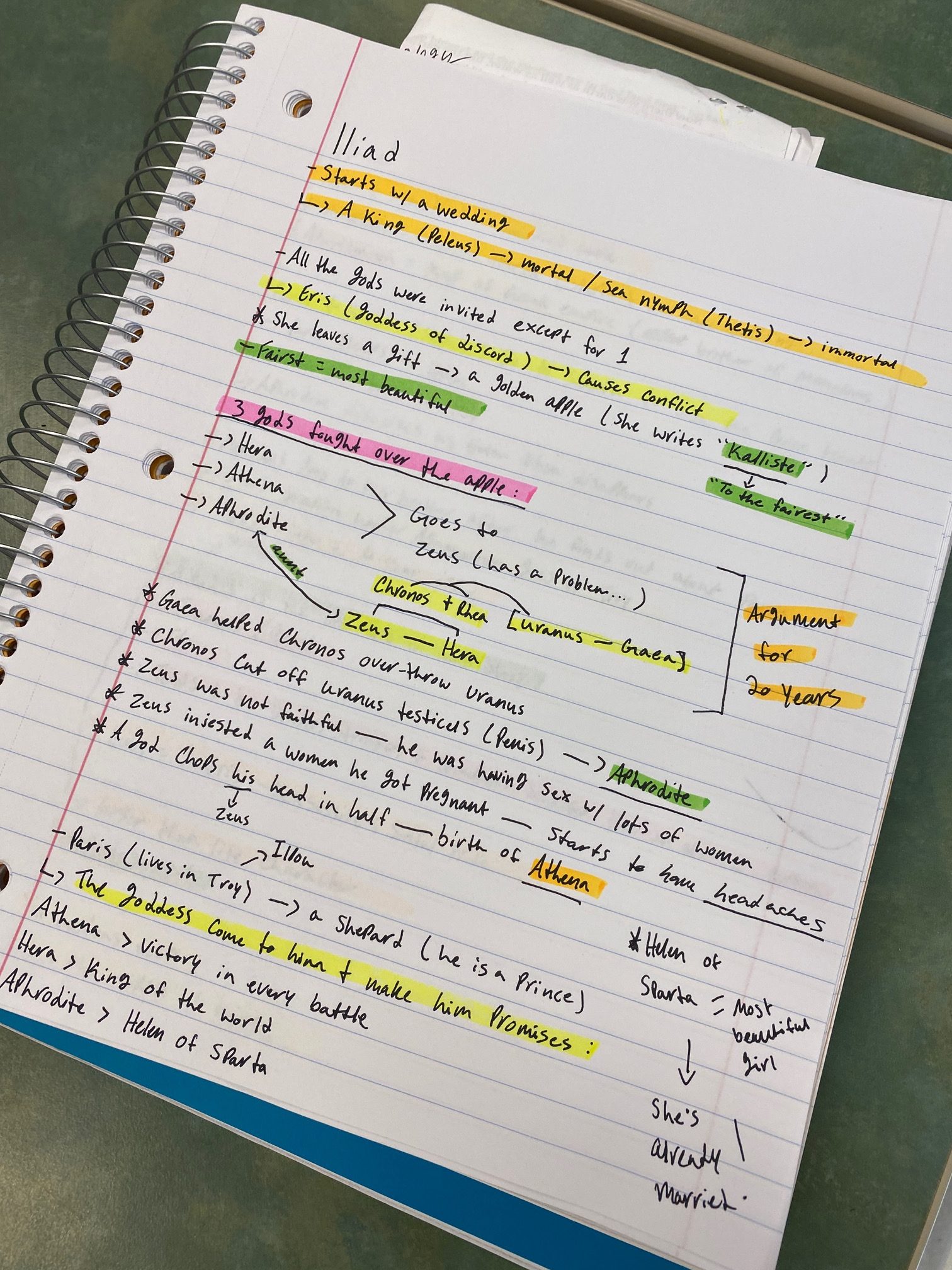

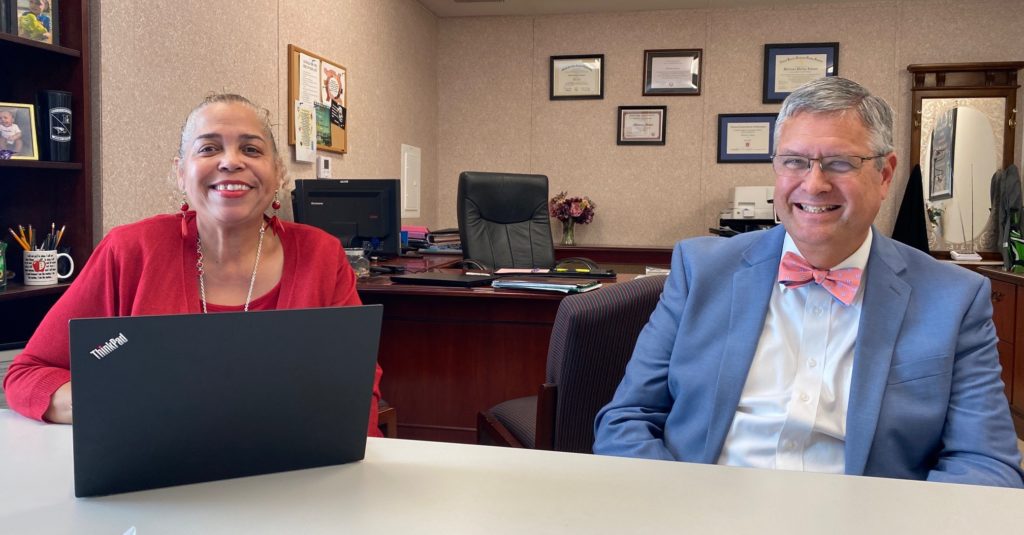
A Leader in Me school, the early college focuses on character and leadership, service learning, and STEM. It is the only school in North Carolina and one of just 50 schools nationally to be recognized as a 2022 National School of Character.
“Our situation was not just different from the traditional high school experience, but different from any high school that has existed in Person County before now. We did this because we are Mavericks; those who are unbranded; those without limitations and boundaries; and those who are independent, choosing to follow different pathways from the majority.”
— Jackson Evans, PECIL valedictorian
Investing in the regional economy
Piedmont Community College invests in micro, small, and large businesses in the counties it serves to build a thriving base of employment.
Senegal said the college is part of conversations when the county is recruiting new companies, like POLYWOOD, which is doubling its footprint in the county and hiring more employees sooner than anticipated.
“This investment in Person County is going to bring good jobs and growth to Roxboro, and POLYWOOD’s recycling innovation is proof that the furniture industry in North Carolina continues to adapt, innovate, and thrive.”
— Gov. Roy Cooper
“It’s not just POLYWOOD,” Senegal said. “It’s company after company that we get in there and we figure out what is it that they need and then we try to figure out creative solutions to meet their needs. And we do that over and over and over again.”
The college also works with small businesses and even micro businesses just getting off the ground. Senegal points out that microbusiness are the majority of the workforce in Person County.
Meet Rick Duke. Duke and his wife Valerie own House Exterminators. “We started at ground zero,” said Duke. “We didn’t know nothing. We didn’t have any direction.”
The Dukes had an idea, but without the help of Scott Keen, the director of the small business center, and a program called BOOST, they wouldn’t have known how to incorporate, how to market, how to keep records, how to track inventory, how to file and pay business taxes, and more.

BOOST, a program unique to Piedmont Community College, stands for Building Opportunities on Saving and Training. BOOST helps develop business skills, and in exchange for taking courses, the college offers matching funds — raised from sources like the Carolina Small Business Development Fund and Wells Fargo — to local business to encourage using equity instead of debt to grow small businesses.
“For microbusinesses,” Senegal said, “think about the power of $1,000 or $2,000. That’s how we grow businesses from one person to three persons to five persons. That’s part of the magic — investing in entrepreneurs and these microbusinesses.”
Sherry Wilborn is the director of Person County Economic Development, which may have the best tagline anywhere in North Carolina — “Everything is better in Person.”
“PCC is part of the fabric of the community,” Wilborn said. “They are an institution but they are an agile institute, and they are always seeking to evolve for the needs of the community. I can’t imagine we would have any level of success with economic development without them as a partner.”
Addressing critical issues facing the community
Fourteen minutes into my interview with Senegal, she started talking about food insecurity.
Right now
“One of our big issues right now,” she said, “is food insecurity. We are seeing it over and over. We knew it was an issue even pre-COVID. But COVID has really brought to the forefront the ways in which some of our students are struggling to have their basic needs met. Part of our responsibility is to create citizens who care about these kinds of issues and know how to tackle them.”
Students and faculty collectively brainstormed what they could do to address the issue. “It became an action project,” said Senegal.
An AmeriCorps VISTA worker was brought in to map food panties in the county.
The college has an agriculture program — Senegal notes “it’s not a theory of ag program, it’s an actual working farm” — that now donates produce to the pantries.
Student leaders built a garden on campus.

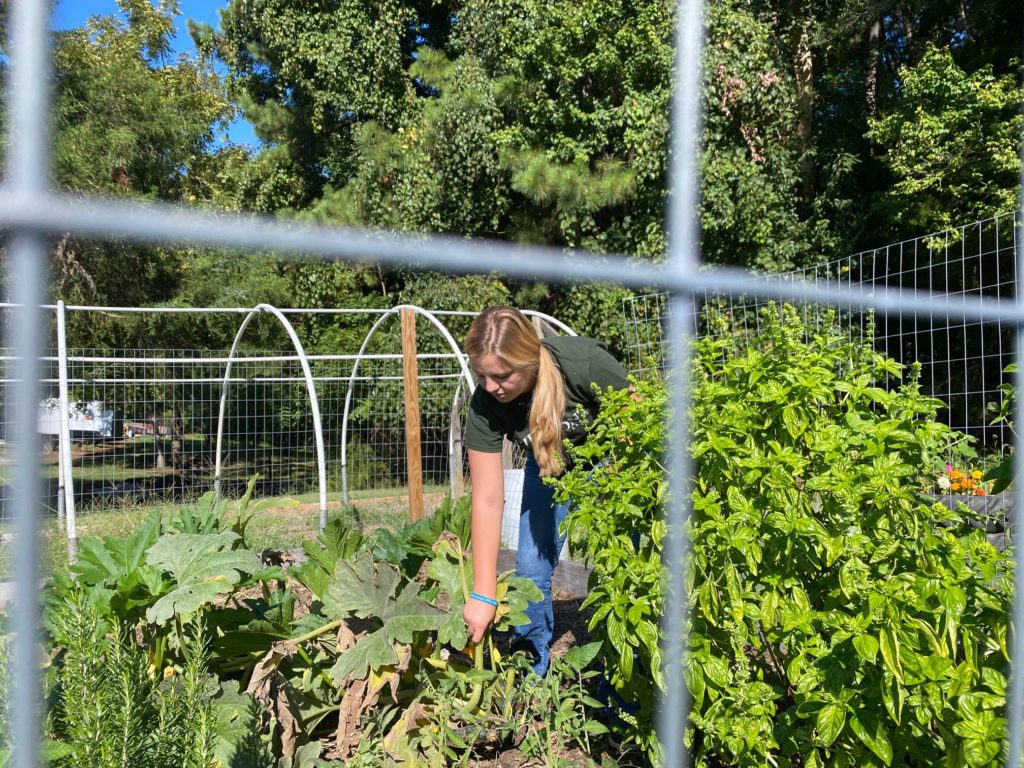
The students were a third-place winner in the Collegiate Hunger Challenge, winning $3,000 to help fight food insecurity and donating 230 pounds of food, assembling 21 care packages, and associating more than 100 Food Lion MVP cards with the campaign.

Getting students focused on feeding their community has allowed Senegal and other college leaders to look to the future.
A CEAD for the future
CEAD, which sounds like seed, stands for Center for Educational and Agricultural Development.
PCC, in partnership with Caswell County and a lot of other partners, has long range plans to address food insecurity that other communities are already replicating.
Located in Pelham, an unincorporated community in northwest Caswell County, CEAD will be “a home for PCC’s Agribusiness Technology program, along with a new food hub space to be operated by a local farmer’s cooperative, an incubator farm to help lift up new farm entrepreneurs, and food retail to help build new markets and visibility for Caswell’s local food products.” It will also be the home to a health clinic, nature trails, an emergency shelter, and more.
It is envisioned as “an economic and wellness catalyst for the community and the region.”
It required a feasibility study and a master plan. PCC is the lead fundraiser, and to date, $10 million has been secured.

Miller, the county manager in Caswell, said older farmers will be able to learn about new technology at CEAD. Those newer to farming will be able to learn from the older farmers. In fact, part of the vision is succession planning for local farms so the agricultural areas can remain agricultural.
The county manager said, “Here again, all this happened because PCC listened to the residents of the county, they understood the needs of the county, and they became invested in what we said we wanted and needed.”
“When problems come to the surface,” Senegal said, “it’s all hands on deck. That’s how we add value.”
Gathering the community
Pacers’ Perspectives is a new initiative, “where PCC hosts discussions to engage in civil discourse on hot topics with varying viewpoints among faculty, staff, students, and community members.”
Most recently, the college convened stakeholders to discuss the potential impact of a casino scheduled to open in Danville, Virginia in 2024.

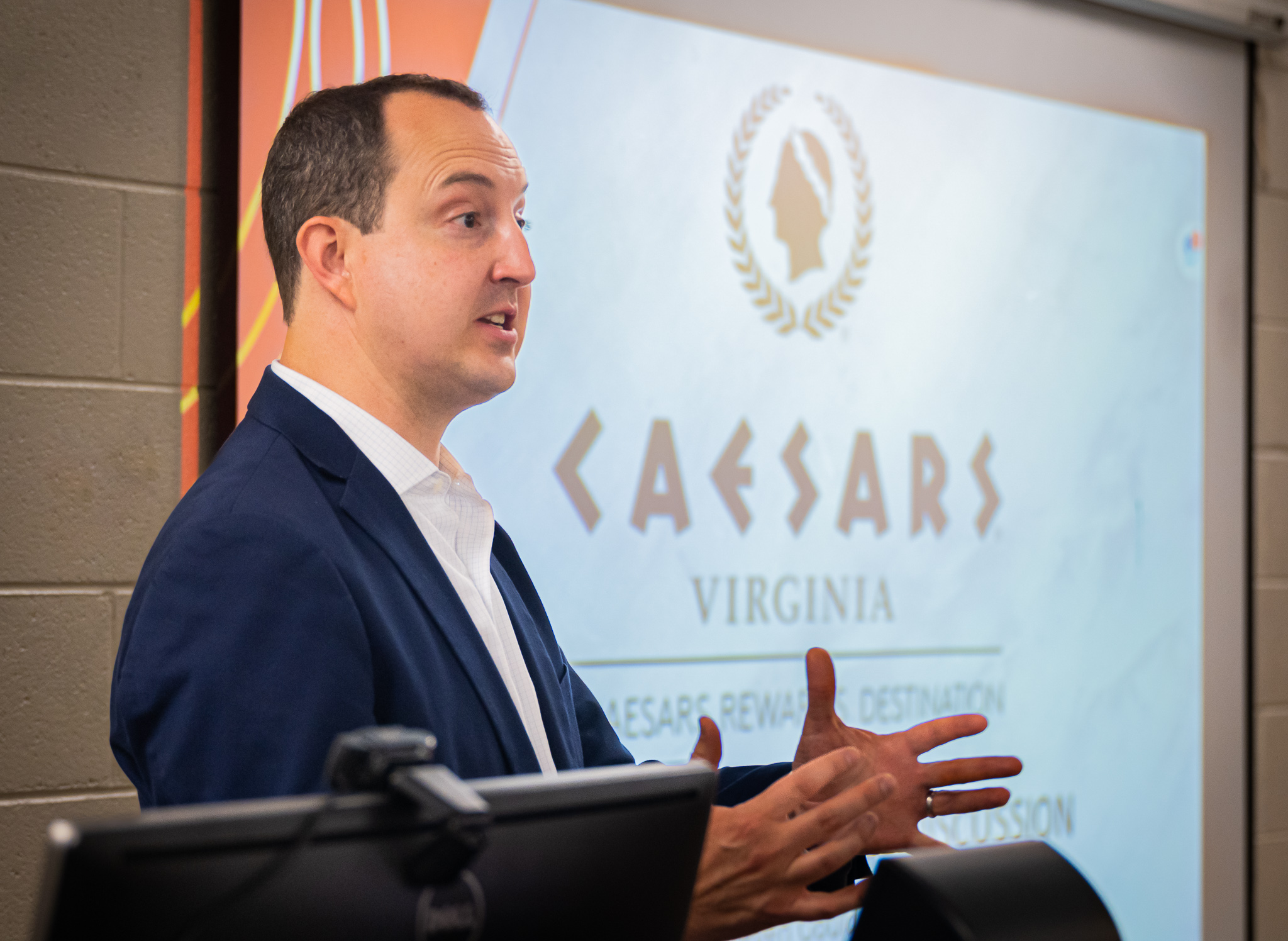
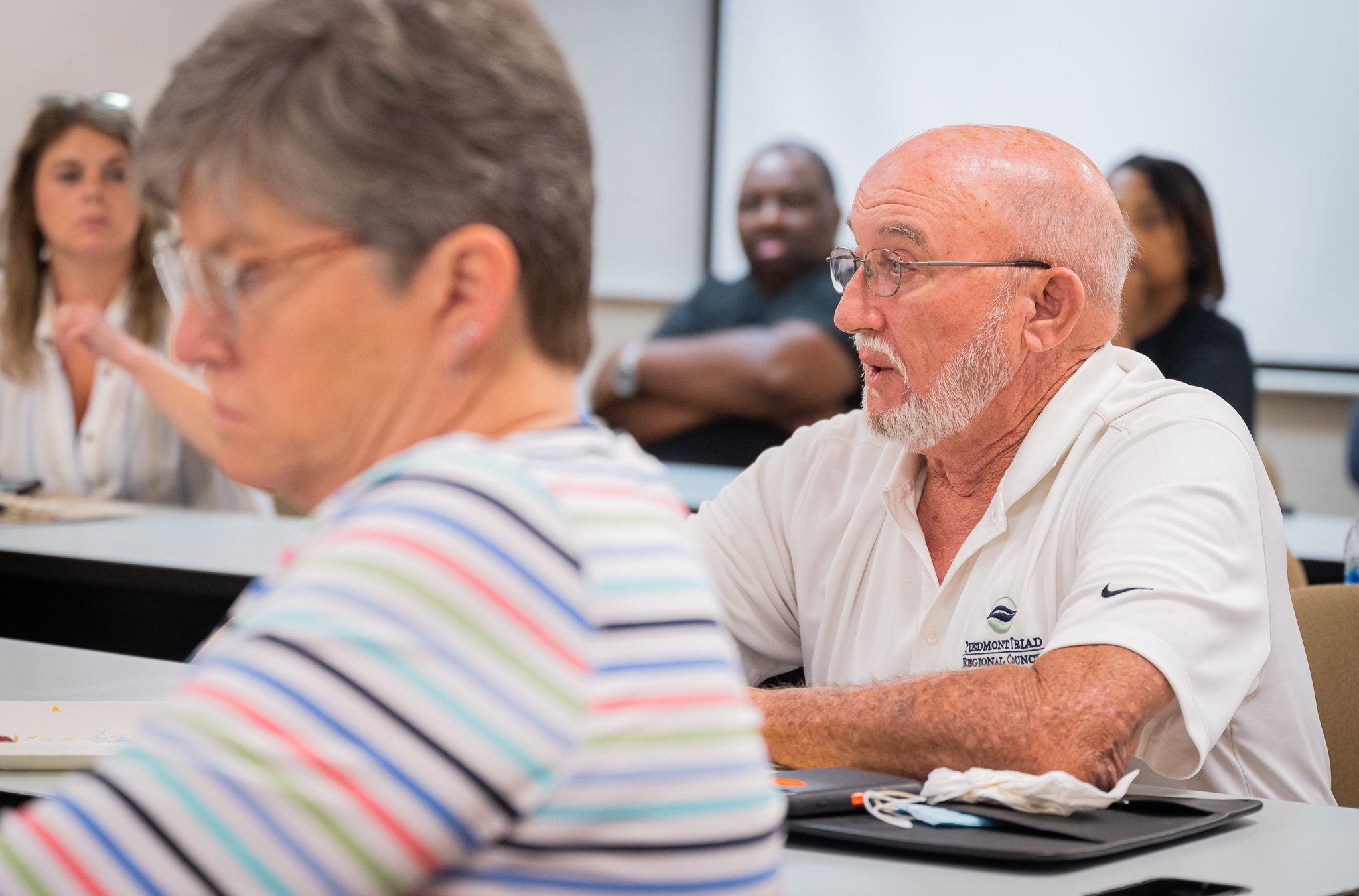
“When we identify community issues, we are constantly looking for ways in which the college can contribute and add value,” said Senegal.
“We are a gathering space. We are really the heartbeat. Our hashtag is we are your #hometowncollege. We are the place that helps transform people’s lives. We are changing the dynamic across generations of families by helping people understand that college can be part of their reality,” said Sengeal. “That’s the power, that’s the magic of what we bring to this community every single day.”



